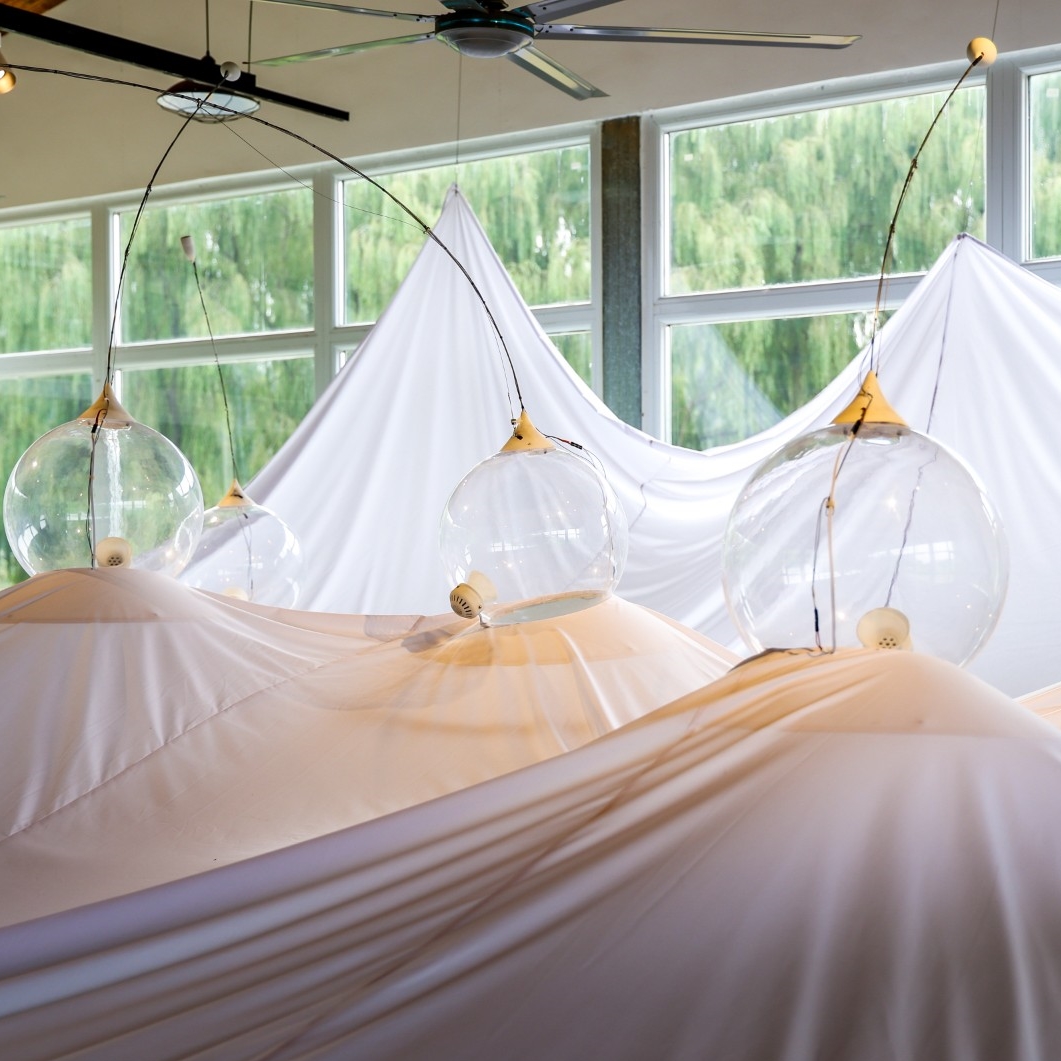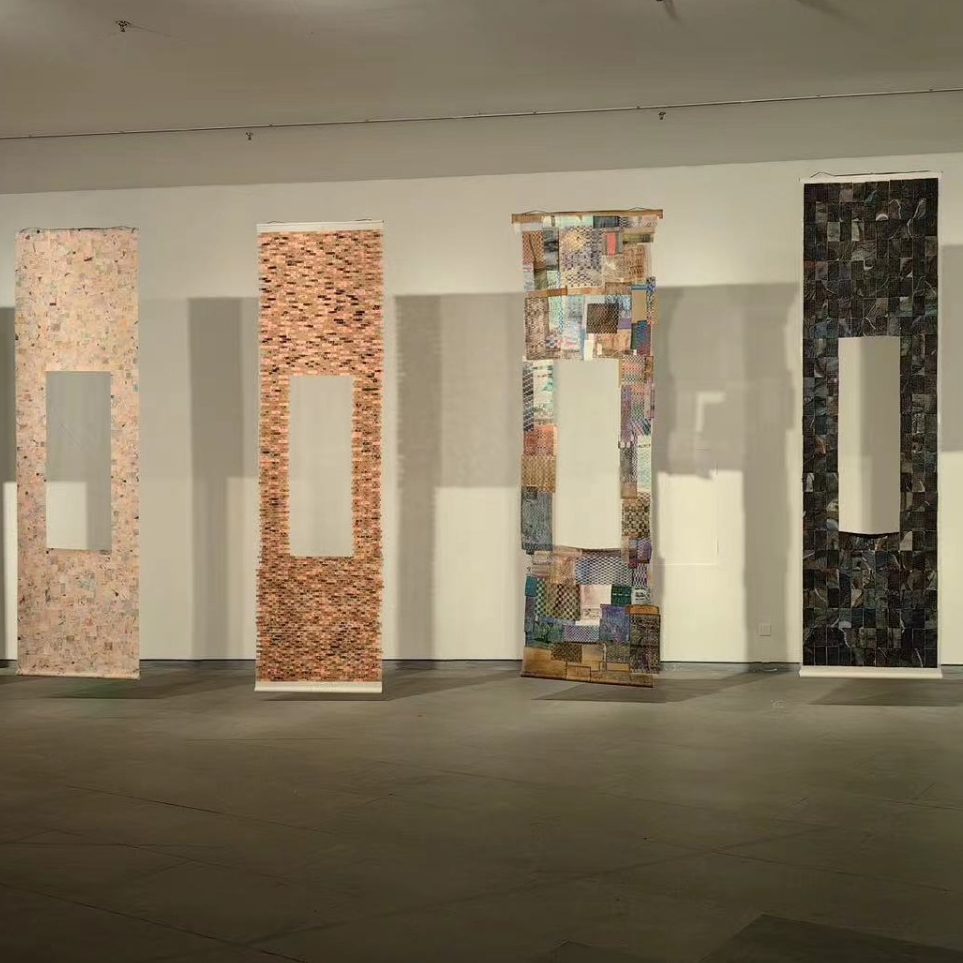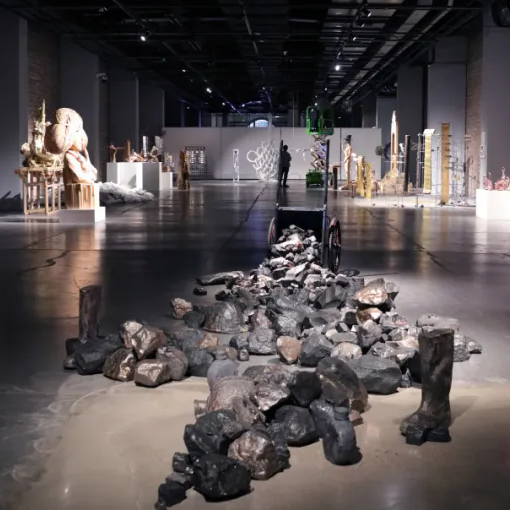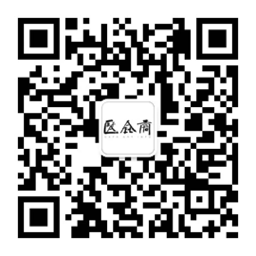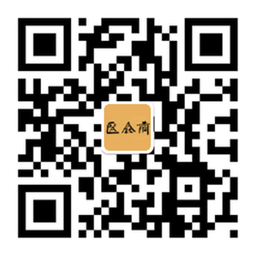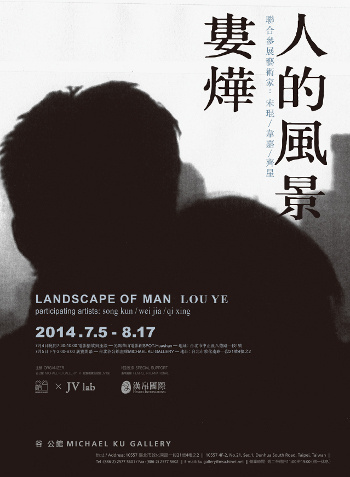
In 2009, artist Song Kun introduced Lou Ye's film, Summer Palace to me. Since then, I have watched his films one by one as much as I could. Cinema occupies an important proportion in the field of arts and culture; profound films are admirable. At a time when things tend to bring entertaining effects with their forms becoming monotonous, it is rare for me to follow a filmmaker's work in this way.
I do not know whether if all film lovers like to observe, to 'watch'. Watch the world, people, humanity. What is subtle in literary and artistic works lies in their sensitivity to and depiction of human nature. Lou Ye's films sometimes represent human natures that reflect the life of today while they also represent a more general human nature, unbound, found in certain time-space which always arouses sympathy. Both representations propose a perspective for watching and it is also in the process of watching, one involves in internal dialogues that are somehow deeper.
As one of the representatives of the sixth generation of Chinese filmmakers, Lou Ye's cinema reflects 'human' on the one hand as well as his/her background and epoch on the other hand. A universality and permanence emerge from the profound depiction and observation of people whereas the network behind them further points out the particularities of the era to which they belong as well as its uniqueness. For example, stories of the characters in Spring Fever and Mystery can happen in any region or city on earth in any epoch. Meanwhile, the various and particular phenomena (rather than superficial presentations) in China today that the filmmaker relates have to undergo profound observation in order to become more accurate and to arouse sympathy more easily.
Corresponding expressions can also be found in art with artists using diverse forms. Song Kun, Wei Jia, Qi Xing, three artists born in the 1970s and the 1980s depict human figures through certain languages of painting. It is interesting to explore figures, sometimes extending from inner feelings and observation to reach external environment of existence. Sometimes it is just the opposite: the external world of reality directly affects and reflects unto human thoughts and behavior. On the level of expressing creative ideas, the three artists all convey the picture's physical composition and metaphysical internal mental shifts through depicting 'hands'. Discussions about the feel of hand in painting and Lou Ye's idea of using hand-held camera in filming are probably approximate. The feel of hand can exhibit possibilities of diverse distinctions that are beyond expectation and consciousness.
The exhibition is entitled 'Human Landscape', a landscape that features extended trajectories, observation, time as well as turns and construction of thoughts. Regarding the promotion, it extends from introduction of a point to that of a plane before leading to further observations of works and facets of characters and personalities that are simple and complex, universal and unique in an overlapped context of an epoch.
Content of the Exhibition
Exhibition of static materials: Exhibition of static materials shows posters and stills of Lou Ye's films, making the viewer appreciate and feel the charm of each of his films in an instinctive visual way.
Reading area: Reading area shows part of the storyboard manuscripts, props, DVD drawn from preprocess of his filmmaking as well as part of the filmmaker's early paintings.
Sound area: Sound area features classic dialogues, music or sound effects drawn from Lou Ye's films, making the viewer feel the power of dialogues through pure sounds.
Exhibition of materials in motion: Exhibition of materials in motion deconstructs all the classic shots and sequences in Lou Ye's films, making the viewer experience the representation of 'human landscape' brought by the filmmaker through recombination of images.

Portrait of Lou Ye
Lou Ye
?Lou Ye is one of the most unique and important artists in the sixth generation of cinema and TV in China.His films always feature double or multiple relations: between image and sound, fiction and documentary, literature and cinema, love and politics, form and content. The subjects he chooses are mostly drawn from the reality whereas his films attempt to recover human existence, to consciously abandon racial and personal myths and to liberate from the shackles of history and culture, liberating the individual from layers of signs and laying bare the real state of life.
With profound inspirational significance, his films also gains international attention while exerting an undoubted influence over the development of cinema and TV in China. As one of the forerunners in contemporary art, his works continue to encourage reflections and discussions in the academic field.
2014
Blind Massage, Silver Bear for Outstanding Artistic Contribution(camera) in the 64th Berlinale
Blind Massage, Golden Bear for Best Film(nominated) in the 64th Berlinale
2013
Mystery, Best Screenplay, Best Newcomer, Best Film in the 7th Asian Film Awards
Mystery, Film of the Year, Actor of the Year in the 13th Chinese Film Media Awards
2012
Mystery, Best New Performer, Best Original Score and nominated for Best Director, Best Screenplay, Best Original Screenplay, Best Leading Actress, Best Film Editing in the 49th Taipei Golden Horse Film Festival
2009
Spring Fever, Best Screenplay Award in the 62th Cannes Film Festival
Spring Fever, Competition for Golden Palm(selected) in the 62nd Cannes Film Festival
2006
Summer Palace, Official Competition(selected) in the 59th Cannes Film Festival
2003
Purple Butterfly, Golden Palm Award(nominated) in the 56th Cannes Film Festival
2000
Suzhou River, Tiger Award in the 29th International Film Festival Rotterdam, Best Film and Best Actress in the 15th Paris Cinema International Film Festival, FIPRESCI Prize in theViennale/Vienna International Film Festival, Grand Prix of Tokyo FILMeX International Film Festival and one of the ten best films of 2000 selected by Time magazine
Artists
Song Kun
Song Kun was born in 1977 in Inner Mongolia, China. Having graduated from the Oil Painting Department of the Central Academy of Fine Arts in Beijing in 2002, she currently lives and works in Beijing. Song Kun's work takes feelings of her own life as the starting point and depicts fragments of life. Her treatments of the picture are sophisticated; light, shades and air interweave to produce a certain blur, endowing the picture with a temperature that is both dreamy and real, making her one of the representative contemporary Chinese artists born in the 1970s. Her early work draws completely from fragments of life. For her most representative piece, she has spent an entire year to write diaries instead of making paintings; the diaries were assembled into a publication whose subtle observation and expressivity evoke romantic feelings in the viewer. Her current work remains consistent with her typical style and feature; it also audaciously present challenges through playing with strong mutations of light and shade whose transformations reveal a subtle balance between and a critique upon self-pursuit and reality.
Wei Jia
Wei Jia was born in 1975 in Chengdu, Sichuan, China. Having graduated from the Print Making Department of the Central Academy of Fine Arts in Beijing in 1999, he currently teaches in the Sichuan Fine Arts Institute and lives in Chongqing. During his studies in the Central Academy, he has already won several important awards in the field of print making before shifting to oil painting as his focus. By fully expressing the immature feelings of youth, Wei Jia's early work has become a favorite for the viewer, making him one of the representative contemporary Chinese artists born in the 1970s. His current work remains focused on one's internal side. Moreover, as he grows elder, his vision is expanded to include his feelings with others and groups in the society. Wei Jia's paintings are realised with skillful techniques while a certain painting language such as the sense of color and the feel of hand is exploited so as to express further prospects. They explore one's spiritual side with subtle sentiments, attracting continuous attention from the viewer.
Qi Xing
Qi Xing was born in 1982 in Tangshan, Hebei, China. Having graduated from the Central Academy of Fine Arts in Beijing in 2005, he participated in the group show "Out of Order" in 2006 in F2 Gallery in Beijing. In 2007, he held the duo solo-exhibition "Paradise" with Lu Zheng Yuan in Eslite Gallery, Taipei. In 2008, he held the solo exhibition "You in a Red Chamber, I Journey West" in Asian Contemporary Art Fair, New York. In 2009, he was selected artist in residence in Glenfiddich, Scotland. His work emphasizes themes around lifeand represents a presence that is both real and false through an artistic vocabulary between reality and pronounced personal strokes, revealing the artist's inner humanist concern as well as the contemporaneity of his generation.
About Michael Ku Gallery
Located at the heart of Taipei. Founded in 2008, Michael Ku Gallery is run by a gallerist with a background of art history. Michael Ku curates each exhibition and composes related texts. Since its inauguration, the gallery has been presenting excellent artists of the emerging generation to form a clearly contextualized system. It also approaches from the angle of culture dissemination in order to establish for itself a perspective with independent spirit and humanistic depth, exploring prospects of another level behind the surfaces of artworks.
JOYN:VISCOM
Founded in Beijing, JOYN:VISCOM is an independent and interdisciplinary design studio and a consulting institute for visual culture exchanges. Whether regarding assignments by the clients or experimental programs of its own initiative, JOYN:VISCOM aims at producing experiences through cross-boundary collaborations of diverse creative fields. Besides, its sub-entity JVlab takes part in and develops various individual categories in the culture field, including exhibitions, lectures, publications, workshops and other exchange activities in an attempt to further explore relations among art, design, technology and life as well as to promote the social engagement of contemporary visual culture.
About the exhibition
Duration: 5 July - 18 Aug 2014
Venue: Michael Ku Gallery
Opening Recrption: 5 July 2014 Sat 15:00-18:00
Film show and Discussion Session
Duration: 4 July 2014 Fri 19:30
Venue: SPOT-Huashan
Movie: Summer Palace
Opening Hours: 11:00-19:00 (Tue - Sun)
Tel: 886-2-25775601
Add: 4F.-1, No.21, Sec. 1, Dunhua S. Rd., Songshan Dist., Taipei City, Taiwan


